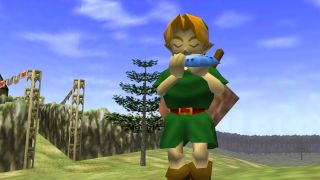
No one has ever found the Triforce in The Legend of Zelda: Ocarina of Time.
The easiest answer to this is probably the most true: there is no Triforce in Ocarina of Time.
Yet people still persist, playing the game's puzzle-solving songs in specific locations, attempting to play through the game without dying, and doing any number of rumored quests to try and find that triangle.
It's not the triangle that matters, though - it's the idea that something exists out there that has yet to be discovered.
Keep it secret, keep it safe
It's cartography for the modern era - we've uncovered and explored so much of what's around us that we have to hide secrets for others to satisfy that urge to find something new.
In modern games, it's much easier to discover secrets and much harder to hide them. More and more people delve into the code of a title to expose its enigmas, laying bare the innards of the thing and digging through with their hands to find what's inside.
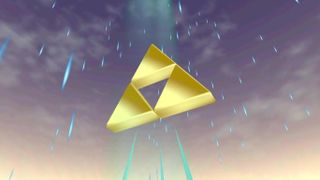
That's how we know there's no hidden Triforce in Ocarina of Time - if it doesn't exist within the beating heart of the game, it's an impossibility.
Get daily insight, inspiration and deals in your inbox
Get the hottest deals available in your inbox plus news, reviews, opinion, analysis and more from the TechRadar team.
What is it about secrets that compels players to go above and beyond to find them - and to start seeing secrets where there are none?
A window between the players and the developers
"I think they're a very personal thing," says Lewis Brundish, a level designer who worked on Fable III, a game so packed with secrets it's surprising they had any time to do anything else.
"Hidden content often doesn't fit within the logic of the game world, and instead serves as a window between the players and the developers."
That personal touch
It's this personal connection between developer and player that encourages discovery and exploration - it changes your game experience from one of solitary play to a conversation between you and the people who made it for you.
The fact that secrets exist outside of the game's logic is important, too - it's how you find them in the first place.
"There's a kind of language to level design that players recognise without even thinking about," says Brundish.
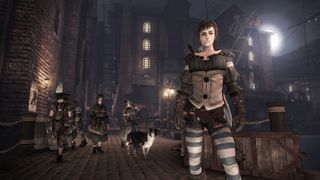
"It's usually a case of hiding something in a very obscure way, but then leaving subtle clues in the environment to cue someone to start looking closer at that area."
Think of Zelda's cracked walls, a visual clue that it might be a good idea to place a bomb there; or a spray of small flowers that form an arrow if you look hard enough - go this way, there are secrets there.
This is the skill with level design - creating a world that's so coherent and recognisable that anything that's slightly out of place stands out, whether that's a change in the texture of the ground or the color of a rock.
Manipulation as entertainment
Most of the time, players won't notice that they're being manipulated by level design, but it's all about tricking the eye with clever placement of lights, objects, chests, doors and camera angles. But when it comes to leading players to secrets, developers have to deliberately obscure the level design while still making it obvious to the observant player - something that's incredibly hard to balance just right.
"It's quite easy to create an impossibly hidden secret," says Luke Williams, level designer at Bossa Studios, who's worked on games such as Surgeon Simulator and I Am Bread - games that delight in obscuring content from their eager fans.
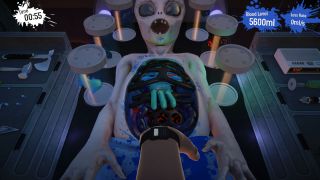
"The biggest secret we hid was the Alien surgery in Surgeon Simulator, it was entwined in a big ARG outside of the game."
ARG stands for "alternate reality game" - one which brings real-world elements into the digital one. The Surgeon Simulator ARG involved finding a phone number scattered throughout the levels, navigating a fake website, calling your real-life phone from the game, figuring out a morse code message… in short, it was particularly in-depth, and a long way from the sort of secrets you'd find in the original Legend of Zelda.
A history of hidden gems
A long time ago, before the internet, and particularly before Reddit, there was no guarantee anyone would actually discover your well-crafted secrets.
The secret of how to beat Bald Bull in Mike Tyson's Punch Out went undiscovered for 22 years
Some secrets weren't discovered for actual decades - like the programmer who hid his initials on the loading screen for Donkey Kong on the Atari 400, which wasn't discovered for 26 years, or the secret of how to beat Bald Bull in Mike Tyson's Punch Out that went undiscovered for 22 years, and only because former President of Nintendo Satoru Iwata mentioned it in an interview.
But now, we do have the internet, and we have the keen eyes and fast fingers of Reddit ready to figure out basically any secret that gets thrown its community's way.

"If you want a secret to stay hidden for longer than a few hours after the game launches, you basically need to make it impossible for any one person to find," says Brundish.
"Secrets can be a great tool for bringing together a community of players who will work together to unlock them" - which is obviously fantastic for engagement - "[but] if there's a trophy or achievement tied to a secret, everyone will just Google the solution immediately."
Lisa Brown, level designer on Hyper Light Drifter and resident game designer at Harrisburg University, worked on a slightly different premise to avoid immediate discovery of all the game's secrets.
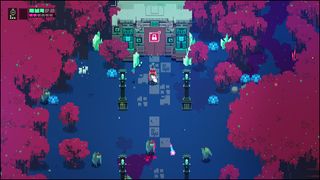
"In Hyper Light Drifter, part of the core promise of the game was discovering secrets, so we could afford to do really obscure things - passages through walls or invisible platforms with no hints or tells in the level design - because we knew our audience would be actively exploring and hunting for them. Even still, the players were still able to pick the game clean of secrets within a matter of weeks!"
Crowd-sourced sleuthing
It would appear that there's no easy way to beat Reddit at its own game - but does it make the secrets less thrilling if they're so quickly depleted?
Potentially not. There are those who engage with those communities and enjoy actively searching for secrets, hidden items and codes - and they get as much enjoyment out of working with the community on those as they do from the game itself.
Reward persistence or patience, or curiosity - traits that games are brilliant at inspiring
Then, there are those who engage one-on-one with the game instead - separate from that community entirely. They don't know that there is a group of people who have discovered everything there is to know, and so, for them, finding one little secret means something personal.
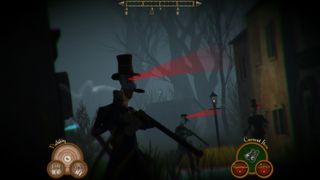
"Anything that makes you feel like a little bit of a game might be hidden away or Just For You is important and an additional thrill," says Jim Rossignol, developer at Big Robot Games who's worked on Sir, You Are Being Hunted and their current title-in-progress, The Signal From Tolva.
"[Secrets] display a sort of extra creativity and risk: the bits of the games that are designed to not be seen by everybody, but instead are created to reward persistence or patience, or curiosity - traits that games are brilliant at inspiring in people."
It's possible to show persistence, patience and curiosity either as a community or as a solo player - or as someone who's somewhere in between, sharing notes and ideas with a friend or two. There's no wrong way to do it, but it's that sense of being rewarded that drives us to spend time digging for more revelations.
Developer diversions
But that's why the players love secrets - why do developers put them in in the first place?
"More often than not developers are working to a tight deadline, and time or resources spent on an elaborate hidden quest is often viewed as time that could be better spent improving the core path of the game," admits Brundish - and yet, developers persist in hiding silly references, jokes and knowing winks to the player.
Perhaps it's down to wanting to distract yourself from the often stressful realities of game development. "When the artists added plug sockets to the environment [in Surgeon Simulator] we were like, "ooooh, let's have it so if you stick something metallic in there you get electrocuted and the controls reverse!"," says Williams. Developers deserve fun, too!

Occasionally, it's a silly in-joke that just gets left in, like in Resistance III, a game Brown worked on: "Our environment artist used a simple little model of a person to use as a scale reference. He accidentally left it in one of the buildings that you float by, and it kept freaking out our QA testers who happened to spot it. So we decided to keep "Creepy Scale Man" in the level, hidden and watching from a window."
Sometimes, it's something as simple and heartfelt as a tribute, as with Rossignol's work on Sir, You Are Being Hunted.
Secrets are tiny two-way windows that can create a silent, affectionate dialogue
"We left a plaque dedicated to the sadly departed brother of one of our Kickstarter backers. The surviving brother was thrilled, and it always makes me feel proud and sad when I encounter it in the world."
Whatever the reason may be, the conversation between developer and player that occurs when secrets are found is one of the most touching in games. Often, games can serve as a screen between the people who worked on it and the people who play it, and secrets are tiny two-way windows that can create a silent, affectionate dialogue between the two.
They might be easier to find nowadays - or at least, more quickly spoiled - but in the end, that will just bring us all closer. Those excitable playground whispers of a Triforce that never existed will never be true - but the sense of community that came out of that always will be.
- Here are the best free games on the planet
Most Popular


